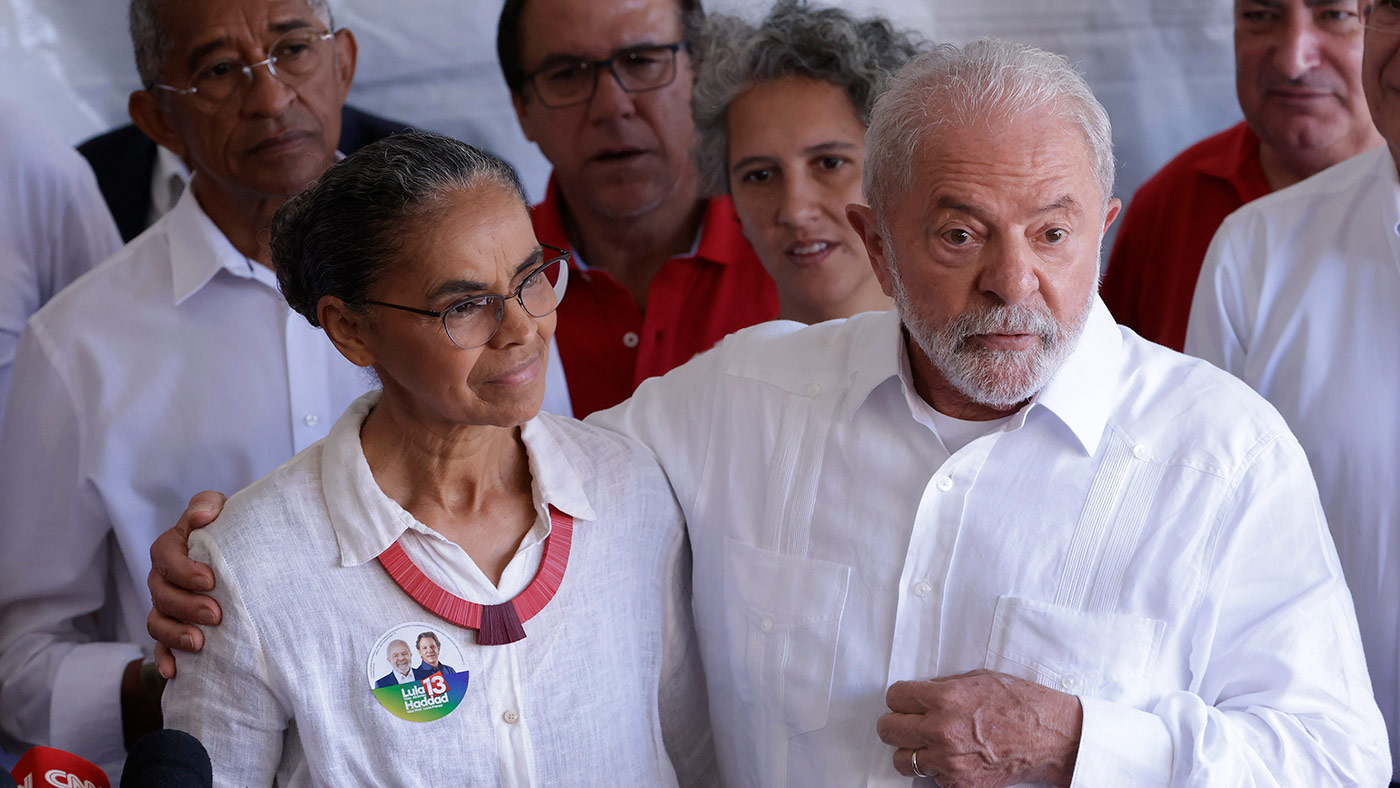Saving the rainforest: the pledge of Brazil’s new president
Lula faces “an uphill battle” in his pledge to reverse and eventually end deforestation in the Amazon

A free daily email with the biggest news stories of the day – and the best features from TheWeek.com
You are now subscribed
Your newsletter sign-up was successful
The Amazon is far and away the world’s most important rainforest, said Karl Mathiesen on Politico (Brussels). A huge carbon sink, it is key to tackling climate change. Yet this was of scant concern to Brazil’s former president, Jair Bolsonaro: he stripped back enforcement of forest protections, attacked indigenous landowners and encouraged industry. During his term, there was a 60% surge in deforestation compared with the previous four years.
Thankfully, all that may change under Brazil’s new president Luiz Inácio Lula da Silva, who was sworn in for a third term on 1 January. Pledging to reverse and eventually end the deforestation, he has already secured promises from Norway and Germany to unfreeze contributions to the multibillion-dollar Amazon Fund, which they had frozen during Bolsonaro’s presidency. And he has named Marina Silva – a high-profile Amazon activist who served under Lula in his first term – as his environment and climate change minister.
‘Violent criminal networks’
The challenge facing Silva is even more daunting than it was when she first took up the post 20 years ago, said Folha de S.Paulo. In point of fact, the scale of deforestation is actually smaller than it was then: some 11,500sq km of the Amazon were destroyed in the 12 months to July last year, but in 2004 the figure was 27,700.
The Week
Escape your echo chamber. Get the facts behind the news, plus analysis from multiple perspectives.

Sign up for The Week's Free Newsletters
From our morning news briefing to a weekly Good News Newsletter, get the best of The Week delivered directly to your inbox.
From our morning news briefing to a weekly Good News Newsletter, get the best of The Week delivered directly to your inbox.
However, back then the main problem was how to prevent ruthless pioneers from bribing officials and forging deeds in order to claim the land and clear the forest: federal agents and the use of satellite data went a long way to tackling that problem. It’s quite different today. Now officials have to contend with the violent criminal networks that flourished under Bolsonaro’s regime. These networks thrive by flooding international markets – notably China – with soy, beef, leather and other products cultivated on cleared rainforest land.
‘An uphill battle’
Lula should be applauded for his resolve to safeguard the forest, said Heriberto Araujo in The New York Times. But he faces “an uphill battle”. Many of those living in the nine states that make up the Brazilian Amazon see the destruction of the forest as a prerequisite for economic prosperity. It’s no accident that in the recent election Bolsonaro won the popular vote in the majority of those states. And since agribusiness is such a major force in Brazil, there is a fear that Lula’s green agenda will hinder economic growth.
Lula deserves a fair chance to prove he can become a climate protector, said Tobias Käufer in Die Welt. But we need to tone down the euphoria at his return to office: “the expectations projected onto Lula are almost unfulfillable”.
A free daily email with the biggest news stories of the day – and the best features from TheWeek.com
-
 Should the EU and UK join Trump’s board of peace?
Should the EU and UK join Trump’s board of peace?Today's Big Question After rushing to praise the initiative European leaders are now alarmed
-
 Antonia Romeo and Whitehall’s women problem
Antonia Romeo and Whitehall’s women problemThe Explainer Before her appointment as cabinet secretary, commentators said hostile briefings and vetting concerns were evidence of ‘sexist, misogynistic culture’ in No. 10
-
 Local elections 2026: where are they and who is expected to win?
Local elections 2026: where are they and who is expected to win?The Explainer Labour is braced for heavy losses and U-turn on postponing some council elections hasn’t helped the party’s prospects
-
 Why broken water companies are failing England and Wales
Why broken water companies are failing England and WalesThe Explainer With rising bills, deteriorating river health and a lack of investment, regulators face an uphill battle to stabilise the industry
-
 The plan to wall off the ‘Doomsday’ glacier
The plan to wall off the ‘Doomsday’ glacierUnder the Radar Massive barrier could ‘slow the rate of ice loss’ from Thwaites Glacier, whose total collapse would have devastating consequences
-
 Can the UK take any more rain?
Can the UK take any more rain?Today’s Big Question An Atlantic jet stream is ‘stuck’ over British skies, leading to ‘biblical’ downpours and more than 40 consecutive days of rain in some areas
-
 As temperatures rise, US incomes fall
As temperatures rise, US incomes fallUnder the radar Elevated temperatures are capable of affecting the entire economy
-
 The world is entering an ‘era of water bankruptcy’
The world is entering an ‘era of water bankruptcy’The explainer Water might soon be more valuable than gold
-
 Climate change could lead to a reptile ‘sexpocalypse’
Climate change could lead to a reptile ‘sexpocalypse’Under the radar The gender gap has hit the animal kingdom
-
 The former largest iceberg is turning blue. It’s a bad sign.
The former largest iceberg is turning blue. It’s a bad sign.Under the radar It is quickly melting away
-
 How drones detected a deadly threat to Arctic whales
How drones detected a deadly threat to Arctic whalesUnder the radar Monitoring the sea in the air